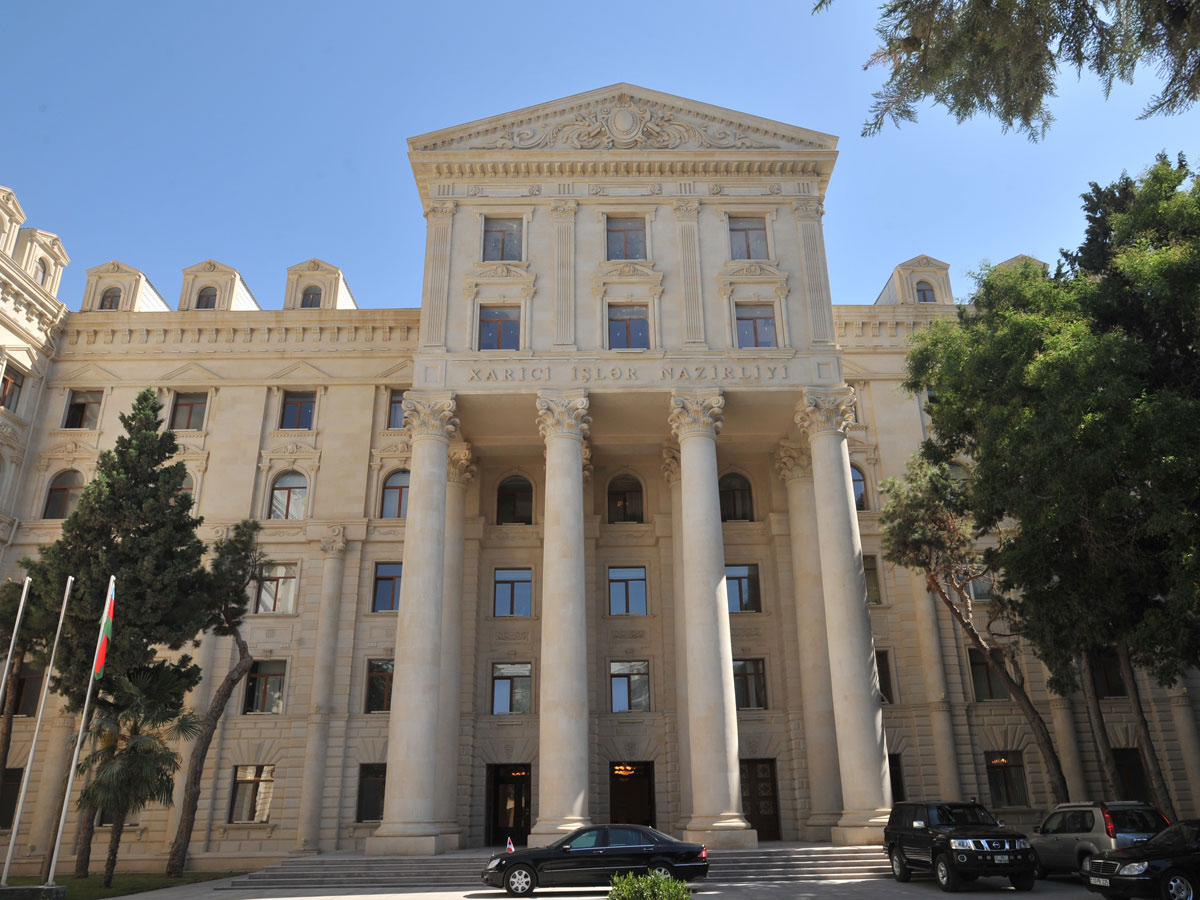Baku, Azerbaijan, Nov. 17
Trend:
Armenian terrorism, including its history and the "modus operandi" (mode of action) as a special area of terrorism has become a subject of study at the international level, Azerbaijani foreign ministry spokesman Hikmat Hajiyev told Trend Nov.17.
Hajiyev advised the officials of Armenia, in particular diplomat biologist Shavarsh Kocharyan, to get familiarized with the declassified and posted online special reports regarding investigations of the CIA and the US Department of State about the Armenian terrorism.
He said that namely the Armenian terrorist organization ASALA implemented the most violent and bloody attacks in France, which has now become the object of terrorism. A bloody attack in the French Orly Airport July 15, 1983 is a clear proof of this, he said.
The Orly Airport attack was the bombing of a Turkish Airlines check-in counter at Orly Airport in Paris, France, by the Armenian terrorist organization ASALA as part of its campaign for the recognition of and reparations for the Armenian Genocide.
The explosion killed eight people and injured 55
Since the late 80s, Armenian terrorist organizations and intelligence agencies have committed more than 32 terrorist attacks in the transport system and other public facilities in Azerbaijan, which is an integral part of the territorial claims of Armenia against Azerbaijan, Hajiyev said.
The victims of these attacks were thousands of innocent civilians, said the foreign ministry spokesman.
The investigating authorities have proved that these attacks were implemented by special services of Armenia, said Hajiyev.
He said that the Khojaly genocide, committed against innocent people with the participation of ASALA groups Aramo and Arabo, is the most striking example of the fact that Armenia is pursuing a policy of terrorism at the national level.
On February 25-26, 1992, the Armenian military, together with the 366th infantry regiment of Soviet troops stationed in Khankendi, committed genocide against the population of the Azerbaijani town of Khojaly. Among those 613 killed in the massacre, there were 63 children, 106 women and 70 old people.
Eight families were totally exterminated, 130 children lost one parent and 25 children lost both. A total of 487 civilians became disabled as a result of the onslaught. Some 1,275 innocent residents were taken hostage, while the fate of 150 people still remains unknown.
Currently, the terrorist organization ASALA and its sub-groups are fully integrated into the special services of Armenia, said Hajiyev.
The official representative of the Azerbaijani ministry of foreign affairs said that Armenia was the initiator of the subway terrorist attacks in the world, the first of which was carried out by special services of the country in the Baku subway March 19, 1994.
The civilian attacks in Baku subway was a series of terrorist incidents in March 19 and July 3 1994. The first attack was perpetrated at the "20 January" metro station, while the second one took place between the "28 May" and "Ganjlik" stations. As a result of the first attack, 14 people were killed and 49 wounded. The second attack resulted in 13 people killed and 42 injured.
Following that tradition, which was laid by Armenians, ten years later terror acts were carried out in Madrid and London subways, he said.
"Armenia is the only country in the world, which is proud of its "terrorist traditions"," he said.
"The fact that a war criminal "General Dro" (Drastamat Kanayan) and terrorist Monte Melkonian, ASALA member, were proclaimed national heroes is a vivid example of this," Hajiyev said, adding that there are even monuments built in Yerevan, dedicated to these people.
He went on to add that Azerbaijan even today encounters Armenia's terror, carried out on a state level.
The world community appreciates Azerbaijan's contribution to fighting with international terrorism, Hajiyev said.
The conflict between the two South Caucasus countries began in 1988 when Armenia made territorial claims against Azerbaijan. As a result of the ensuing war, in 1992 Armenian armed forces occupied 20 percent of Azerbaijan, including the Nagorno-Karabakh region and seven surrounding districts.
The two countries signed a ceasefire agreement in 1994. The co-chairs of the OSCE Minsk Group, Russia, France and the US are currently holding peace negotiations.
Armenia has not yet implemented the UN Security Council's four resolutions on the liberation of the Nagorno-Karabakh and the surrounding regions.






